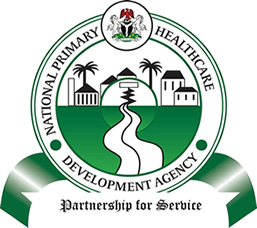The National Primary Health Care Development Agency (NPHCDA), has said that the country’s response to the Diphtheria was massive and intense emphasis on the severity of the situation.
Dr Faisal Shuaib, the Executive Director, NPHCDA, said this to newsmen on Thursday in Abuja.
Shuaib said that with over 600 deaths, mostly children, each new case represented not just a statistic, but a family in distress and a nation grappling with avoidable suffering.
Acknowledging the compassion and leadership of President Bola Ahmed Tinubu, as well as the swift action of the Coordinating Minister of Health and Social Welfare, Prof Muhammad Ali Pate, he expressed gratitude for the resources and clear charge provided to combat the outbreak.
“To gain first-hand insight and assess response efforts, the Task Team embarked on an extensive tour of five heavily affected states – Borno, Yobe, Jigawa, Kano, and Kaduna.
“Our mission was three-fold: to evaluate ongoing efforts, engage with healthcare professionals on the frontlines, and directly interact with governors, traditional, religious, and opinion leaders.
“The collaborative efforts of federal, state and local health authorities were instrumental in resolving observed gaps in real-time.
“Governors demonstrated unwavering commitment by waiving fees for treatment, providing meals for patients and caregivers, and mobilizing resources to combat the outbreak,” he said.
According to him, vaccination campaigns played a crucial role in the response. Phase 2 Round 1, which commenced on September 23, targeted seven states and 56 local government areas profoundly impacted by the outbreak.
He said that the results were remarkable, with 4,859,181 children receiving the Pentavalent vaccine and 3,166,419 children receiving the Td vaccine.
He said that the epicentre of the outbreak, Kano state, exemplified the commitment to immunization, vaccinating over a million children with the Td and Pentavalent vaccines.
Other affected states, including Katsina, Kaduna, Bauchi, Borno, Jigawa, and Yobe, he said, also made significant strides in protecting the health and well-being of their children through dedicated vaccination campaigns.
He emphasised that the ongoing outbreak response was integrated with routine immunization services delivered to all 36 states and the Federal Capital Territory.
“This dual approach is aimed at preventing other vaccine-preventable diseases from occurring in epidemic proportions.”
While vaccination was crucial, the NPHCDA boss stressed the importance of raising awareness about immunization and the consequences of neglecting it.
“Non-pharmaceutical measures such as handwashing, sanitiser use, facemasks, and good respiratory hygiene were also highlighted as effective in reducing transmission,” he advised.
Dr Blaise Bathondoli, the WHO Team Leader, Diphtheria Outbreak, Response, Nigeria, said that in the ongoing battle against the Diphtheria outbreak in Nigeria, WHO has been actively supporting national and state health authorities, as well as partner organizations.
“The WHO efforts have focused on various aspects of the response, aiming to control the spread of the disease and provide necessary medical supplies.
“Reactive vaccination campaigns have been a crucial component of the response.
“WHO, in collaboration with national and state health authorities, is supporting campaigns in 40 Local Government Areas (LGAs) across seven states: Kano, Katsina, Kaduna, Bauchi, Yobe, Jigawa, and Borno,” he said.
Bathondoli said that the target population for the second round of reactive vaccinations exceeds 5.3 million children.
“To ensure the success of these campaigns, WHO has provided support in training vaccination teams and developing micro-plans for implementation in the targeted LGAs.
The WHO has also invested in the procurement and distribution of medical supplies.
“This includes life-saving Diphtheria Antitoxin (DAT), antibiotics like erythromycin for treating infected individuals, and Personal Protective Equipment (PPE) to safeguard healthcare workers,” he said.
Recognizing the importance of timely supply delivery, he said the health organisation established supply routes and logistics chains to ensure that the necessary medical supplies reach the most affected areas promptly.
Additionally, he said the organization was overseeing the procurement of critical laboratory supplies, as diagnosis plays a vital role in disease control.
“WHO’s field personnel are actively involved in supporting Nigeria’s health authorities across the country.
“Their tasks include active case search, contact tracing, and data collection, which are essential for effective outbreak management.
“The organization is also engaged in training healthcare professionals in best practices for case management, infection prevention, and control,” he said.
According to him, collaboration is a key aspect of the response efforts, and WHO is working closely with multiple stakeholders, including state-level health authorities, international and local organizations, and partners such as Médecins Sans Frontières (MSF).
“The collaboration involves data sharing, resource pooling, and strategic planning to avoid duplication of efforts and ensure the most effective use of resources,” he said.
He said that the partnership with MSF has been particularly critical in managing the procurement of DAT and contributing to its equitable distribution across the affected areas. (NAN)


